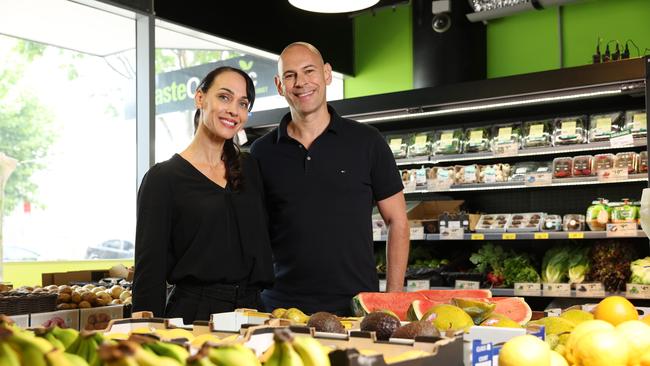New rules to end rotten ‘organic’ product rorts
A loophole allowing food to be marketed as organic despite containing just two per cent organic ingredients is set to be closed, with new regulations coming to make it easier to identify the real thing and weed out fraudsters.

NSW
Don't miss out on the headlines from NSW. Followed categories will be added to My News.
A loophole allowing food to be marketed as organic despite containing as little as two per cent organic ingredients is set to be closed, with a major overhaul of regulations to take place as part of a push by the Nationals.
The Nationals moved the bill Tuesday, which will require businesses that sell organic produce to obtain an organic certificate.
The bill will also impose penalties on businesses selling or intending to sell organic product where there is no organic certificate, with a transition period of three years for businesses to get up to speed.
As it stands, it’s not legally required for a product supplied in Australia to have organic certification to be described as organic, while multiple bodies exist which can certify a product as organic – although the minimum standards differ between them.
Nationals leader David Littleproud said the bill would introduce a recognised, uniform national standard and will enable Aussie businesses to increase their export opportunities, by having an equivalent standard to what other countries’ markets have.

“It defies logic that organic products currently aren’t required to be certified or comply with any particular organic standard, but can still call themselves organic,” he said.
“Products in Australia can claim to be organic with as little as two per cent of the ingredients being certified organic. In comparison, organic products sold for export require 95 per cent organic ingredients.”
Australia is the last nation in the OECD to not have a regulatory framework for the use of the word ‘organic’.
Mr Littleproud said the current regulations around organic certification are “not fit for purpose”.
“The difference is misleading on consumers and unfair on sellers who are doing the right thing. It leads to lack of information and accountability, which impacts consumer confidence in organic products, increases costs for organic businesses and hinders market growth,” Mr Littleproud said.
Jimmy Aschner, who owns Turramurra Wholefoods and runs the operations at Taste Organic grocers in Enmore and Cammeray, believes the proposed bill for more stringent regulations would benefit more consumers.

“If we advertise food as organic then there should be some rigour around ensuring those products are what they say they’re supposed to be,” he said.
“At the moment if you set up a shop you can just label it organic (with few regulations).”
Mr Aschner believes clarity about what products are and aren’t organic have helped build trust with shoppers looking for organic products.
He has sought to work with reputable companies supplying Australian Certified Organic products recognisable by the ‘bud’ logo to differentiate from other often misleading “organic” claims.
“Our customers come to us because they trust us, so we in turn want to trust that we’re getting what the label really says it is so we can be transparent with everyone who walks through our doors,” he said.
“Customers are very knowledgeable, so we have to be onto it.”
More Coverage
Originally published as New rules to end rotten ‘organic’ product rorts




